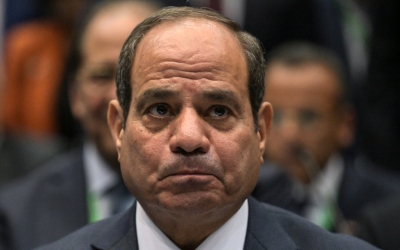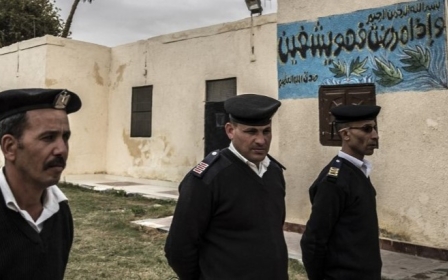Giulio Regeni murder: Trial of Egyptian suspects can proceed
Italy’s Constitutional Court on Wednesday ruled that the trial of four Egyptian intelligence officers suspected of involvement in the 2016 murder of Italian student Giulio Regeni can proceed in absentia.
The court said the trial could proceed even though the officers have not been informed of the proceedings, while Egypt has in the past said it would not hand over the suspects to Italy.
"There is obviously great satisfaction in the possibility of holding a trial according to our constitutional principles, which remain the guiding light of our work," chief Rome prosecutor Francesco Lo Voi said in a statement on Wednesday.
Regeni, a doctoral candidate at Cambridge University who was researching independent trade unions in Egypt, was discovered dead in January 2016, after being left semi-naked on the side of the Cairo-Alexandria highway.
Examination of his body showed that he had been beaten, burned, and stabbed before his neck was broken after being struck from behind with a heavy, blunt object.
New MEE newsletter: Jerusalem Dispatch
Sign up to get the latest insights and analysis on Israel-Palestine, alongside Turkey Unpacked and other MEE newsletters
Italian prosecutors have laid responsibility for the "aggravated kidnapping" of Regeni at the feet of Major Magdi Sharif, from Egypt's General Intelligence, Major General Tarek Sabir, the former head of state security, police Colonel Hisham Helmy, and Colonel Ather Kamal, a former head of investigations in Cairo city.
Sharif has also been accused of "conspiracy to commit aggravated murder".
The four accused were referred to a criminal trial in absentia in May 2022.
However, the court decided in October of that year that it could not proceed with the case until there was proof that the defendants had received notice of being on trial in Italy.
As a result, the case was returned to a preliminary hearings judge.
In November 2020, the Egyptian Public Prosecution closed the file on Regeni's murder, saying authorities failed to identify a suspect in the case.
Since rising to power after a 2013 military coup, Egyptian President Abdel Fattah el-Sisi has embarked on a brutal crackdown on any form of political opposition, jailing more than 60,000 dissidents.
Middle East Eye delivers independent and unrivalled coverage and analysis of the Middle East, North Africa and beyond. To learn more about republishing this content and the associated fees, please fill out this form. More about MEE can be found here.





